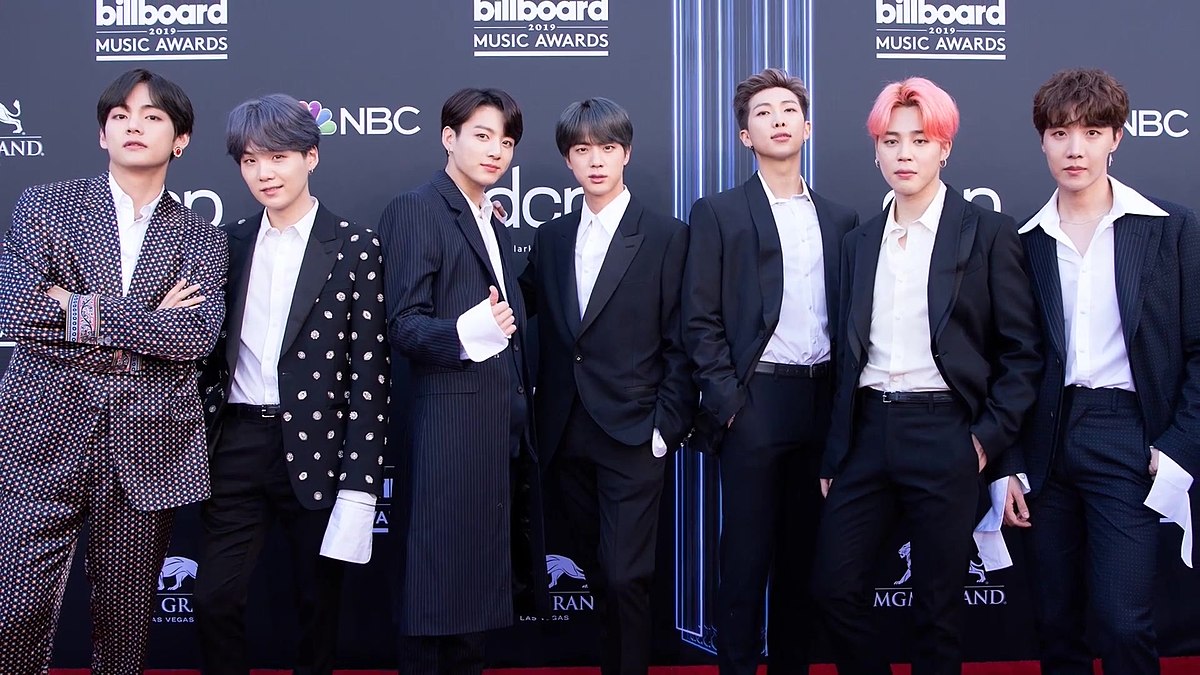
BTS – the infamous Korean Boy band receives a deferment from compulsory military service. Just a day after BTS made the Billboard chart history, yet again, the South Korean government made the history of it is own.
The National Assembly on December 1st changed the longstanding law related to compulsory military service to allow a small rest for the artists and entertainers who have contributed a lot to the nation’s global reputation, which includes BTS.
The law previously required all-male South Korean citizens to complete two years of military service by the age of 30, which means they need to be enrolled maximum by the age of 28. But a change in this law arrives just in time, giving exemption to the BTS band’s oldest member Kim- Seok Jin, from joining the military services after December 4th when he turns 28.
Fans of BTS were relieved to learn that the band won’t be breaking now. The new law allows eligible K-pop band members a grace period before they are required to enlist.
On November 30th, BTS became the first band in history to top the Billboard Hot 100 chart with a song sung in Korean: “Life Goes On,” the second chart-topping single from the group’s new pandemic-themed album Be. The band also broke a slew of other records at an equivalent time, including the fastest accumulation of three No. 1 songs on the recent 100 since the Bee Gees accomplished that feat in 1978.
Compulsory Military Service Law in Korea:
In South Korea, each year, more than 200,000 men have to give a pause to their studies or careers to join the military. Conscription is crucial for them to defend their country against North Korea. Once a Korean male turns 18, compulsory military service comes into effect. South Korea’s constitution, implemented in July 1948, states in Article 39: “All citizens shall have the duty of national defence under the conditions as prescribed by Act.” South Korea’s Military Service Act of 1949, implemented in 1957, states that compulsory military service is required for men once they turn 19 years old.
Enlistment for military service starts at 18 years within the country. They need not start immediately and can delay their service until the age of 28. Mostly, the first graduate from high school, enter university and in a year or two go for their military service. In some cases, they wait to finish their university too. Military service isn’t compulsory for ladies in South Korea but voluntary.
Defence officials say that after having decades of low birth rates, there will be a lack of young men to maintain an army of 620,000 members.
The BTS Law:
As a revised rule, a pop culture artist who, recommended by the Minister of Culture, Sports and Tourism to have significantly contributed in building the image of Korea, within the nation or outside the world, will be allowed to postpone their service until the age of 30.
BTS is the reason behind the revision of the law for his or her significant contribution in making South Korea known to the planet. In 2018, they received the Order of Cultural Merit from the Korean government, which could just mean that they will defer their conscription. Hence, this change is reform is popularly also knowing as the BTS law as called by the South Korean Parliament itself.
Exemption from Korean Military:
Exemptions to the Korean military service law already existed for athletes, entertainers and other public figures, but those exemptions required to complete a term of military training. Those who had enrolled in PhD programs abroad are also given an exemption.
Former President Park Chung-hee initiated exemptions for athletes in 1973 in an attempt to gain awards for the country; some historians believe the athletics also served as a distraction against the government’s unpopularity. After winning a trophy at the 1976 Summer Olympics, wrestler Yang Jung-mo was granted the primary exemption. In the 1980s, president Chun Doo-hwan guaranteed exemptions to any athlete who won a medal in either the 1986 Asian Games or the 1988 Summer Olympics.
Current conscription regulations stipulate that athletes who win medals within the Olympic Games or gold medals within the Asian Games are granted exemptions from military service.
In practice, after athletes finish their four weeks of basic training, they’re ready to continue their own sports career during the 34 months of duty. The policy has resulted in coaches being accused of choosing players wanting to avoid military service rather than choosing the simplest athletes. Parents encourage their children to pursue sports in hopes of them receiving an exemption.
Notable athletes who are granted exemptions from military service are the bronze medal-winning eleven at the 2012 Summer Olympics, 2008 Olympic gold medallist badminton player Lee Yong-die, swimmer Park Tae-hwan, 2014 Asian Games gold medallist athlete Hyeon Chung, 2018 Asian Games gold medallist footballer Son Heung Min, and 2018 Asian Games gold medallist ballplayer Lee Jung-hoo.
BTS’s Contribution to Korea
Noh Woong- Rae, a senior lawmaker in governing the Democratic party told that “It’s a sacred duty to defend our country but that doesn’t mean that everyone has to carry a weapon.”
He made this statement in October, supporting the notion that special treatment needs to be given to BTS. The band has a significant role in creating a good image of Korea across the globe. There has been an increase in tourism, sale of South Korean export products, the balance of payments and more.
BTS started its activities in 2014 and took the whole world by storm in October 2019, promoting the image of South Korea worldwide. As per reports released by the Korean Foundation for International Cultural Exchange, nearly 800-thousand foreigners have visited South Korea for BTS-motivated reasons per annum.
BTS is estimated to possess been liable for 7.6 per cent of the entire foreign tourists who visit South Korea. The group’s annual production inducement effect is estimated to be at 3.6 billion dollars, with its added value inducement effect projected at 1.2 billion dollars.
Korean’s military service requirement for a long time kept coming into the country’s growing pop idol industry, with bands having members enlisted during a time of their success. Bands that have many members can afford to lose a member or two without losing their momentum, but the requirement for the same could be troublesome. A comeback for the bands could be uncertain, for instance, who is to be complete their term within a year or two.
The revision gone by the National Assembly allows the culture minister to nominate incredibly successful pop stars to be allowed to postpone signing up for the military until they’re 30.
Despite this change in the law, there is still an ongoing debate as to if BTS should serve in the army, considering their contribution for bringing up South Korea in many ways.





